Low oil can cause a car to shut off due to inadequate lubrication of the engine’s moving parts, resulting in damage and overheating. When the oil level drops too low, the engine may automatically shut off to prevent further harm.
Without sufficient oil, the pistons can seize, bearings can wear out, and other critical engine components can deteriorate, leading to engine failure and an unexpected shutdown. Maintaining proper oil levels is crucial for the smooth functioning and longevity of a car’s engine.
It is essential to regularly check the oil level and ensure it is topped up to prevent potential damage and stalling while driving.
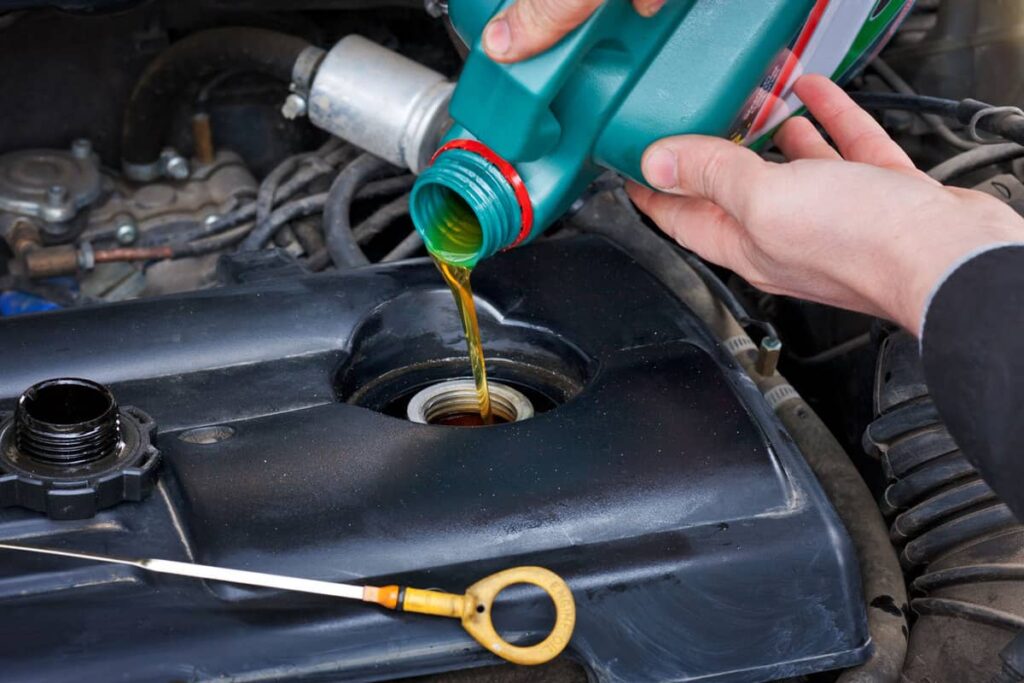
Understanding The Impact Of Low Oil On Car Performance
Low oil can negatively impact car performance, potentially causing it to shut off. Understanding this connection is crucial to avoiding damage and ensuring optimal car operation.
The significance of oil in car functioning:
- Oil is the lifeblood of an engine, ensuring its smooth operation and longevity.
- It serves multiple crucial functions, ranging from lubrication to temperature control.
How oil lubricates engine parts:
- The primary role of oil is to reduce friction between moving engine parts.
- Proper lubrication prevents wear and tear, as well as costly repairs.
- It forms a protective layer, preventing metal-to-metal contact and reducing heat buildup.
Role of oil in maintaining engine temperature:
- Oil helps dissipate heat generated during combustion.
- It carries away excess heat from the engine components, preventing overheating.
- Maintaining optimal operating temperatures ensures efficient performance and prolongs the life of the engine.
Low oil levels can have severe consequences for car performance:
- Insufficient lubrication due to low oil levels can result in increased friction, leading to excessive wear and damage.
- Heat from combustion may not be efficiently dissipated, causing the engine to overheat.
- The lack of proper lubrication and temperature control can result in engine failure and potential safety hazards.
Oil plays a crucial role in keeping the engine running smoothly by reducing friction, ensuring proper lubrication, and managing engine temperature. Low oil levels can lead to severe consequences, including engine damage and potential safety issues.
Regularly checking and maintaining the proper oil levels is essential for optimal car performance and longevity.
Low Engine Oil Symptoms In A Car
Low oil in a car can cause it to shut off unexpectedly. Common symptoms include engine misfires, increased engine noise, and warning lights on the dashboard. It is essential to check oil levels regularly to prevent engine damage.
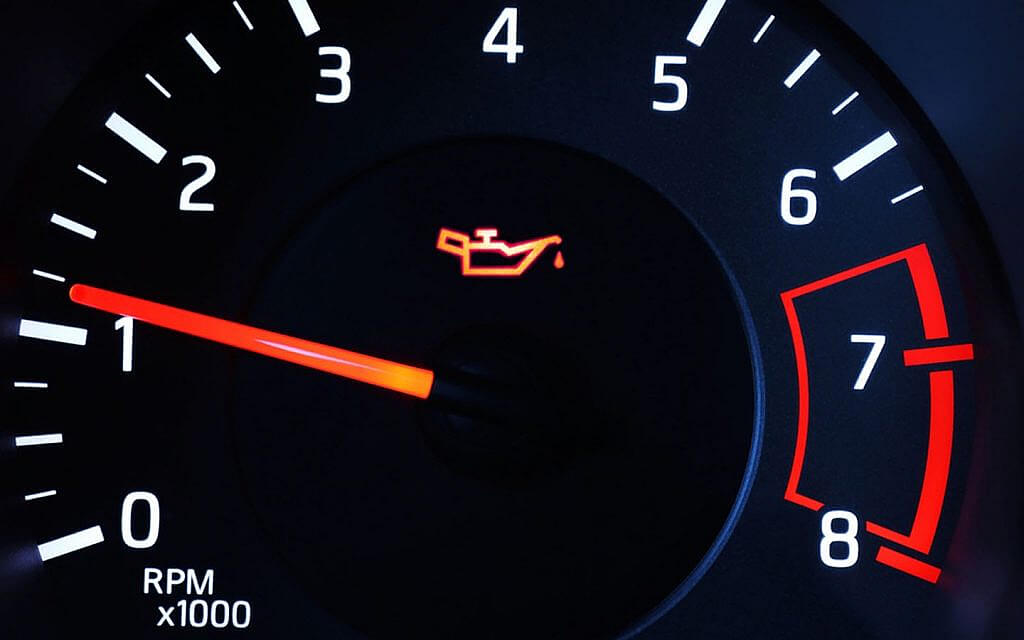
Here are some signs to watch out for:
Oil Pressure Warning Light:
- The illumination of the oil pressure warning light on your dashboard indicates low oil levels or inadequate oil pressure. This warning light usually resembles an oil can or an engine symbol. Ignoring this warning can have serious consequences for your engine.
Engine Knocking or Ticking Noise:
- A low oil level can result in insufficient lubrication, causing engine components to rub against each other. This friction produces a distinct knocking or ticking noise. If you hear these sounds, it is vital to address the issue promptly to avoid further engine damage.
Overheating Engine:
- Insufficient oil can lead to increased engine temperature, as oil plays a critical role in cooling various engine components. When your car is low on oil, it cannot effectively dissipate heat, resulting in the engine overheating. Keep an eye on your temperature gauge to prevent potential engine issues.
Decreased Fuel Efficiency:
- Low oil levels can also impact your car’s fuel efficiency. Inadequate lubrication places additional strain on the engine, making it work harder to perform. This extra effort can cause a drop in fuel efficiency, leading to more frequent visits to the gas station.
Smoke From The Exhaust:
- Smoke emitting from your car’s exhaust can be an indicator of low oil levels. When there is not enough oil to lubricate the engine’s moving parts, excessive friction can generate smoke as the components heat up. Monitor your exhaust for any unusual smoke emissions.
These symptoms of low oil in a car should not be ignored, as they could lead to severe engine damage and costly repairs. Regularly checking and maintaining the oil levels in your vehicle is essential for optimal engine performance and longevity.
The Mechanism Behind A Car Shutting Off Due To Low Oil
A car shutting off due to low oil levels occurs because the engine lacks the lubrication necessary for proper functioning. Without enough oil, the engine can overheat and seize up, causing the car to abruptly stop running. Regular oil checks and changes are crucial to preventing this issue.
Insufficient lubrication and heat buildup:
- When a car’s oil level is low, there is not enough lubrication to protect the moving parts of the engine.
- The friction created by the lack of lubrication leads to excess heat buildup.
- This heat can cause engine components to warp or even seize up, leading to the car shutting off abruptly.
Increased friction and wear on engine components:
- Low oil levels result in increased friction between the engine’s moving parts.
- Increased friction leads to accelerated wear and tear on engine components such as the piston rings, bearings, and camshafts.
- As wear increases, the engine becomes less efficient and may eventually shut off due to the excessive strain on these vital components.
Damage to vital engine parts resulting in failures:
- The lack of oil can cause significant damage to vital engine parts.
- As the engine runs with insufficient lubrication, metal-to-metal contact occurs, leading to severe wear and tear.
- This can cause the engine parts to fail, resulting in the car shutting off unexpectedly.
Critical impact on engine timing and combustion cycle:
- Oil plays a crucial role in ensuring proper engine timing and the combustion cycle.
- With low oil levels, the engine may experience irregular timing and disruptions in the combustion process.
- This can lead to misfires and engine instability, ultimately causing the car to shut off as a safety measure.
Low oil levels can have detrimental effects on a car’s engine, leading to the vehicle shutting off. Insufficient lubrication and heat buildup, increased friction and wear on engine components, damage to vital engine parts resulting in failures, and a critical impact on engine timing and the combustion cycle are all factors that contribute to a car shutting off due to low oil.
It is crucial to regularly check and maintain proper oil levels to ensure the smooth operation and longevity of your vehicle’s engine.
Potential Consequences Of Ignoring The Low Oil Issue
Ignoring low oil levels in a car can lead to severe consequences, including the possibility of the vehicle shutting off unexpectedly. This can result in engine damage or even accidents. Regularly checking and maintaining proper oil levels is crucial for the smooth operation of a car.
Severe Engine Damage And Costly Repairs:
- Insufficient oil levels can cause friction and heat buildup within the engine, leading to internal components wearing out faster.
- The lack of lubrication can result in excessive friction between metal parts, causing them to grind against each other and potentially leading to irreparable damage.
- When the engine is not properly lubricated, it can overheat and seize, requiring expensive repairs or even a complete engine replacement.
Risk Of Complete Engine Failure:
- Ignoring low oil levels can push your engine to its limits, increasing the likelihood of a catastrophic engine failure.
- Without proper lubrication, key engine parts can become damaged or destroyed, rendering the engine inoperable.
- A complete engine failure often necessitates a costly replacement, resulting in significant inconvenience and expense.
Safety Hazards While Driving:
- Low oil levels can negatively affect your vehicle’s performance, compromising its ability to function optimally.
- Inadequate lubrication can lead to impaired engine performance, reducing acceleration, power, and overall reliability.
- An engine that shuts off unexpectedly due to low oil levels can result in a loss of control and compromise your safety while driving.
Reduced Lifespan Of The Vehicle:
- Continuous neglect of low oil levels can significantly reduce the overall lifespan of your vehicle.
- Engine damage caused by insufficient lubrication can accelerate wear and tear on crucial components, shortening their useful lives.
- Neglecting oil maintenance may lead to additional mechanical issues, compounding the strain on your vehicle and potentially shortening its lifespan.
Remember, regularly checking and maintaining your oil levels is essential for the optimal functioning of your car. By addressing low-oil issues promptly, you can avoid these potential consequences and ensure a longer lifespan for your vehicle.
Steps To Prevent A Car From Shutting Off Due To Low Oil
Preventing a car from shutting off due to low oil is crucial to avoiding potential engine damage and breakdowns. Regularly checking oil levels, changing the oil and filter, and addressing any leaks or oil-related issues can help maintain proper lubrication and prevent the car from stalling.
Regular oil checks and maintenance:
- Regularly check your car’s oil level to ensure it is within the recommended range.
- Monitor the oil level using the dipstick provided by your vehicle’s manufacturer.
- If the oil level is low, add the necessary amount of oil as recommended in the owner’s manual.
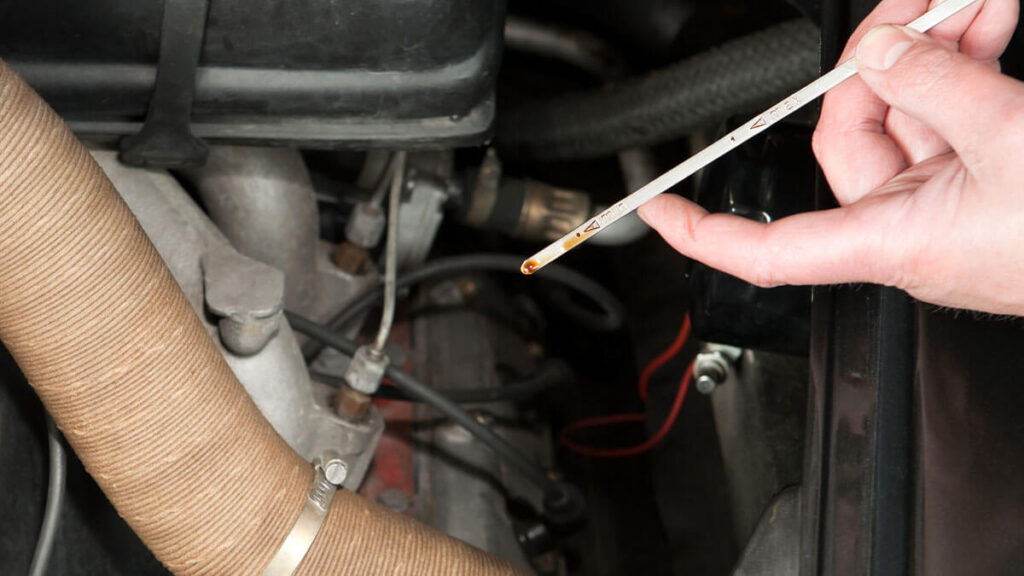
Understanding the recommended oil levels:
- Familiarize yourself with the recommended oil level for your specific car model.
- The ideal oil level is usually indicated by two marks on the dipstick: A minimum and a maximum level.
- Ensure that the oil level consistently falls between these two marks to avoid engine damage and potential shut-offs.
Monitoring for any oil leaks and addressing them promptly:
- Regularly inspect your car’s engine and surrounding areas for any signs of oil leakage.
- Check for oil puddles or oil stains on the ground where your car is parked.
- If you notice any oil leaks, address them promptly by taking your car to a professional mechanic to prevent further damage and a potential engine shutdown.
Following the manufacturer’s guidelines for oil change intervals:
- Refer to your vehicle’s owner’s manual for the recommended oil change intervals.
- Adhere to the manufacturer’s guidelines and ensure that oil changes are done at the specified intervals.
- Regularly changing the oil will help keep the engine well-lubricated and reduce the risk of low oil causing a car to shut off.
Preventing a car from shutting off due to low oil levels requires regular oil checks, understanding the recommended oil levels, monitoring for any oil leaks, and following the manufacturer’s guidelines for oil change intervals.
By following these steps, you can ensure that your car’s engine stays properly lubricated and minimize the risk of unexpected shutdowns.
Importance Of Using High-Quality Oil And Filters
Using high-quality oil and filters is crucial, as low oil levels can lead to a car shutting off. Prevent potential engine damage and ensure smooth performance by regularly maintaining oil levels and investing in premium oil and filters.
Differentiating Between Oil Types and Viscosity:
- Synthetic oil: Synthetic oil is artificially made and offers superior engine protection and performance. It is designed to withstand extreme temperatures and provide better lubrication, reducing friction and wear on engine components.
- Conventional oil: Conventional oil is derived from crude oil and is the most commonly used oil. While it provides decent engine protection, it may break down under extreme temperatures or prolonged use.
- Viscosity: Viscosity refers to the oil’s flowability at different temperatures. It is denoted by a combination of numbers and letters on the oil bottle, such as 5W-30 or 10W-40. The first number indicates the oil’s flow at low temperatures, while the second number represents its flow at high temperatures. Choosing the right viscosity ensures proper lubrication in all conditions.
Benefits of Using High-Quality Oil and Filters:
- Engine protection: High-quality oil prevents engine components from rubbing against each other, reducing friction and wear. It also forms a protective barrier that prevents contaminants from damaging engine parts.
- Improved fuel efficiency: Using high-quality oil and filters helps keep the engine running smoothly, resulting in better fuel efficiency. The reduced friction allows the engine to work more efficiently, reducing fuel consumption.
- Extended engine life: High-quality oil and filters prevent harmful particles from circulating within the engine, minimizing damage and prolonging its lifespan. Regularly changing the oil and filters with high-quality options ensures optimal engine health.
The Role Of Oil Additives In Enhancing Performance And Longevity:
- Detergents: Oil additives with detergents help to keep the engine clean by removing deposits and sludge that can build up over time. This promotes better engine performance and reduces the risk of clogs in critical engine parts.
- Anti-wear agents: Oil additives with anti-wear agents create a protective film on engine surfaces, reducing friction and minimizing wear. This is especially important during cold starts, when lubrication is crucial.
- Viscosity modifiers: Additives with viscosity modifiers help maintain a consistent viscosity across different temperature ranges. This ensures proper lubrication at both high and low temperatures, protecting the engine during extreme conditions.
- Anti-foam agents: Additives with anti-foam properties prevent the formation of foam bubbles in the oil, which could lead to reduced lubrication and air entrainment within the engine. This helps maintain oil stability and performance.
Using high-quality oil and filters, understanding different oil types and viscosities, and considering the role of oil additives can greatly contribute to the overall performance, longevity, and reliability of your car’s engine.
Make sure to consult your vehicle’s manufacturer’s recommendations and guidelines when choosing the ideal oil and filters for your specific vehicle.
Remember, seeking professional help is crucial to effectively diagnosing and resolve low oil issues, ensuring the optimal performance and longevity of your vehicle.
Can low oil cause a car to shut off while driving?
Absolutely, low oil can spell disaster for your ride. It starves the engine of proper lubrication, leading to increased friction and heat. In extreme cases, this can cause your car to shut off while cruising. Keep that oil level in check for a smooth and uninterrupted journey.
How to reduce oil level in car?
Decreasing oil levels? Not the usual request, but if you must, the old-school way is to drain it via the oil pan. Be cautious, though, as maintaining the right oil level is crucial for your engine’s well-being. If you’re intentionally lowering it, ensure you’re not compromising your vehicle’s performance.
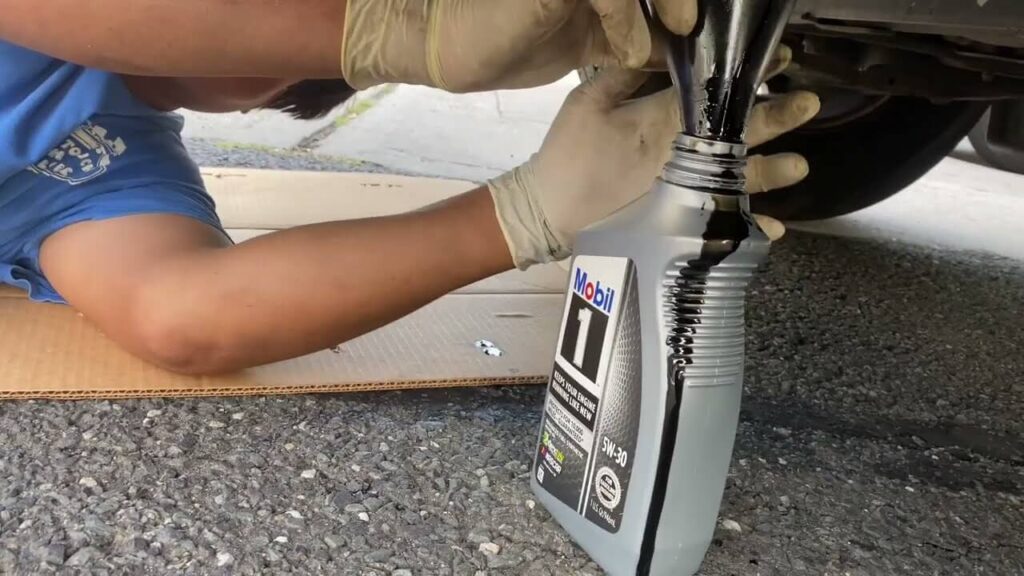
What to do if engine oil is low?
Low on engine oil? Swift action is required! Top it up with the recommended oil type ASAP. Ignoring it could lead to engine damage. Prioritize that oil change, and your ride will thank you for its smooth operation.
Low oil pressure shutdown system
A low oil pressure shutdown system is your car’s guardian angel. When it senses oil pressure dropping to risky levels, it intervenes by shutting down the engine. It’s a protective measure, preventing potential damage caused by inadequate lubrication. Your vehicle’s way of saying, “I need some oil love.”
Low engine oil level warning light
The low engine oil level warning light is your car’s polite nudge to pay attention. When it illuminates, it signals that your oil levels are running on the lean side. It’s time to give your engine the liquid gold it craves before things get too parched.
Keep an eye on that warning light; it’s your car’s way of saying, “Quench my thirst, please!” Need more insights, or are you ready to tackle this oil adventure?
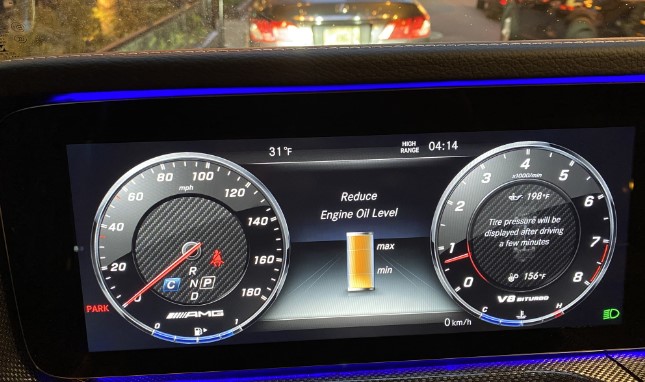
How to tell if oil is low on dipstick?
Checking oil levels on the dipstick is a skill worth mastering. Pull it out, wipe it clean, reinsert, and then pull it out again. The oil should leave a noticeable mark between the two lines, or dots, on the dipstick. If it’s closer to the lower one, you’re running low.
It’s time to give your engine a sip of that liquid gold. Any more dipstick dilemmas you want me to untangle?
FAQs: Can Low Oil Cause A Car To Shut Off?
How Does A Car Act When Low On Oil?
When low on oil, a car may exhibit symptoms such as engine knocking, reduced power, and increased oil consumption.
Why Does My Car Shut Off When I Drive Low Oil?
If your car shuts off when you drive with low oil, it’s because the engine doesn’t have enough lubrication.
Why Wont My Car Start When The Oil Is Low?
Low oil levels can prevent your car from starting.
Can Low Oil Cause A Car To Shut Off?
Low oil levels can lead to engine damage and cause a car to shut off. Without proper lubrication, the engine components can overheat and seize, resulting in a sudden shutdown. Regularly checking and maintaining the proper oil level is crucial to avoid this issue and ensure the longevity of your vehicle.
Conclusion
As a vehicle owner, it’s crucial to understand the impact of low oil levels on your car’s performance. In this blog post, we’ve explored the question: Can low oil cause a car to shut off? The answer is a resolute yes.
Insufficient oil can lead to engine overheating and increased friction, which can ultimately result in your car shutting off unexpectedly. This is a situation you definitely want to avoid, as it can lead to not only inconvenience but also costly repairs.
Regularly checking your oil levels and ensuring they are at the recommended level is a simple yet effective way to prevent this issue. Remember, a well-maintained engine is vital for the smooth operation and longevity of your vehicle.
So, take care of your car by regularly checking and maintaining proper oil levels, and you’ll avoid the potentially nerve-wracking experience of a sudden car shutdown.
Drive safely!
